These impressive Final Fantasy 14 decorators use glitches to make your house a home
Renovation can mean breaking the game as much as breaking the bank.
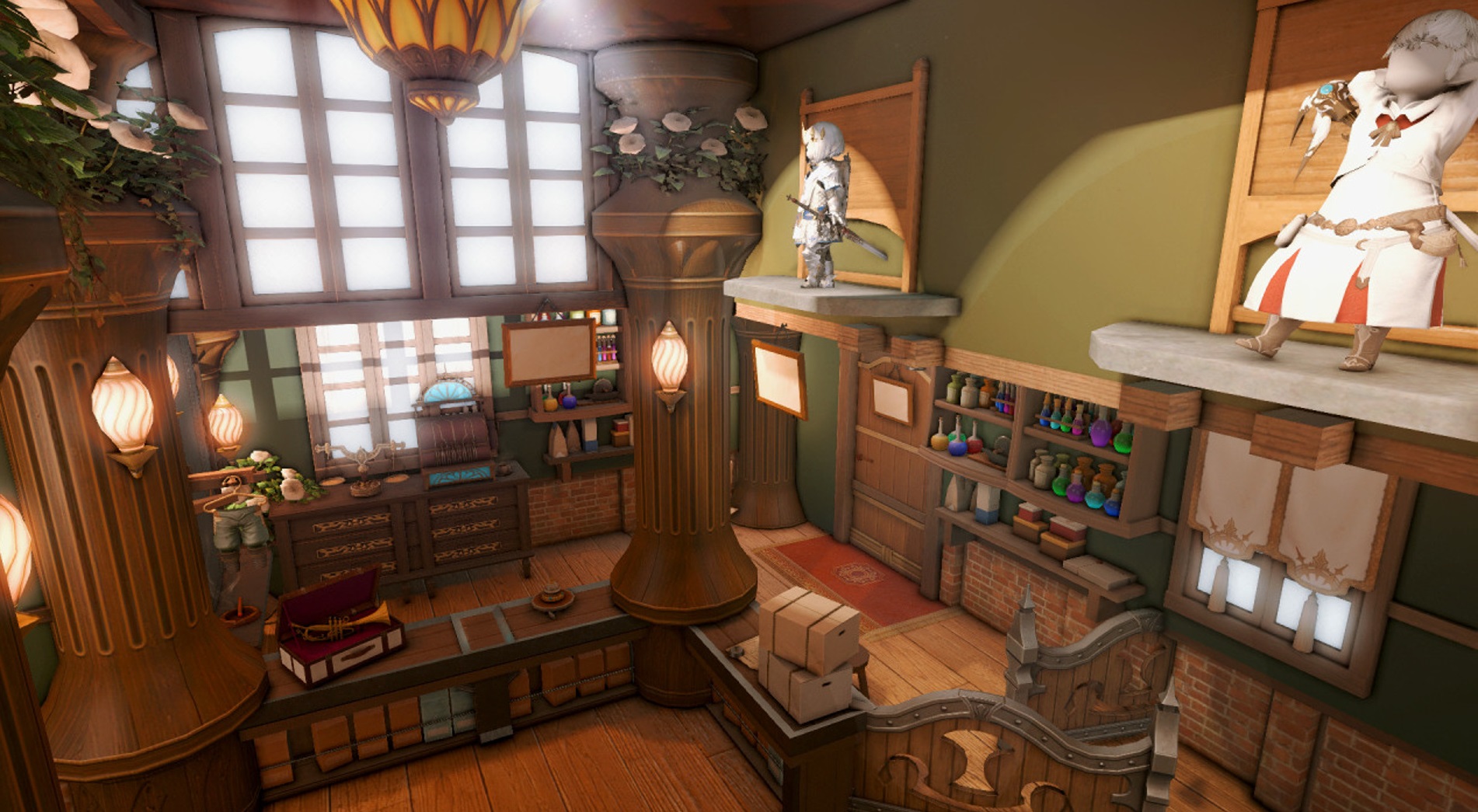
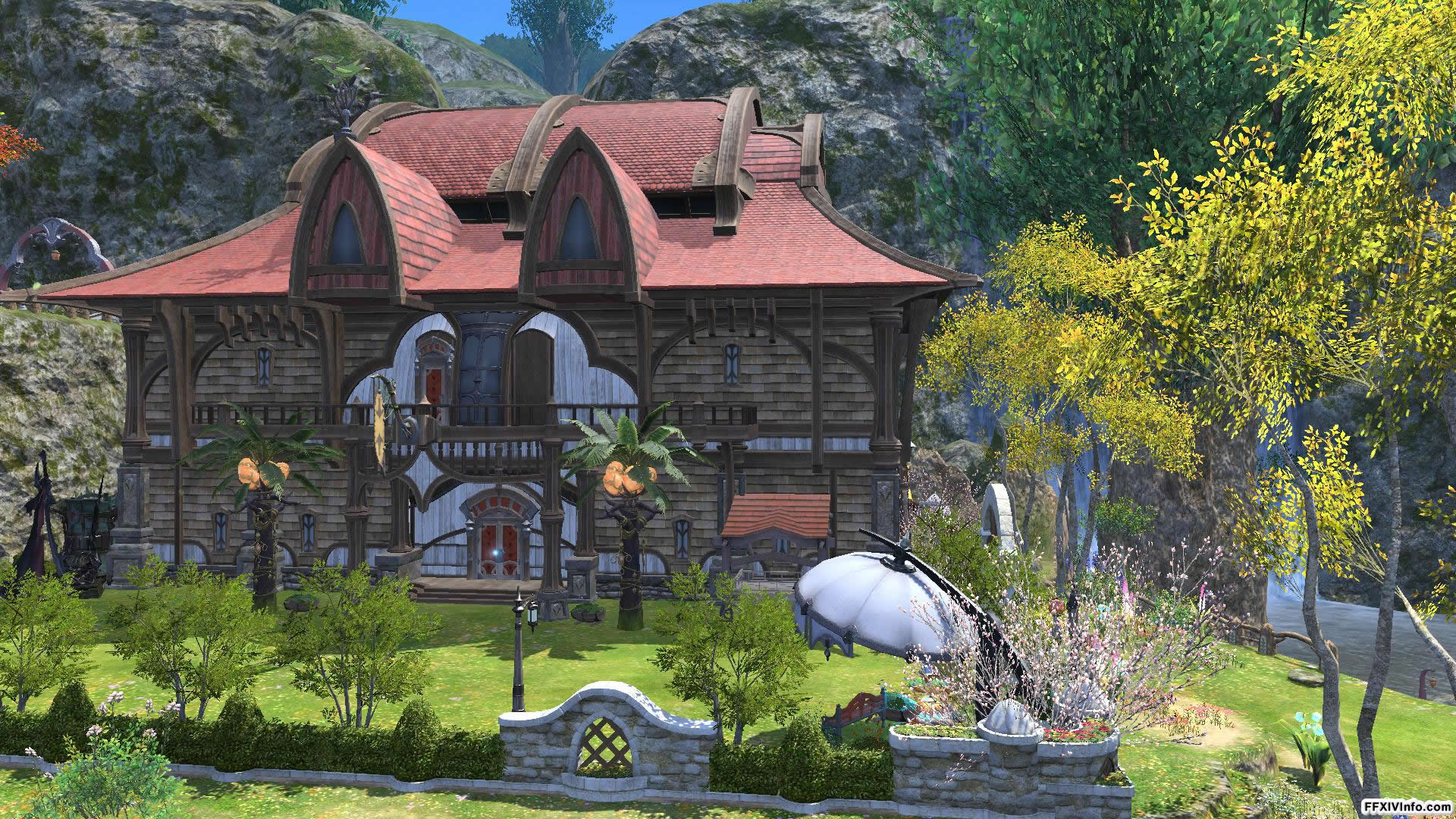
If you fancy getting into the Eorzean housing market yourself, take a gander at our Final Fantasy 14 housing guide to learn the basics.
Being a homeowner in Eorzea can be a privilege—especially with a housing market this brutal—and if you're lucky enough to have your own patch of land, you're going to want it to look as good as possible. Where Final Fantasy 14's decoration options may seem lacklustre, home designers are on call to teach you some tricks of the trade.
Using a mix of glitches and design know-how, Final Fantasy 14's housing specialists create homes that look and feel cosy, inviting, and liveable, giving the residents somewhere they can look forward to hanging out in for years to come. A small but growing collective, these enthusiasts are turning housing into an elaborate science.
"With the glitching, whenever we get a new item in a patch, we get so excited to lift it up, to sink it down, to turn it around," Ashen Bride, an FF14 housing designer and co-host of the HGXIV podcast, tells me. "We'll take the tiniest edge of something, like the back of a bench, and we'll get so excited, like 'OK, this going to be a window shutter now.' It's like a weird Tetris."
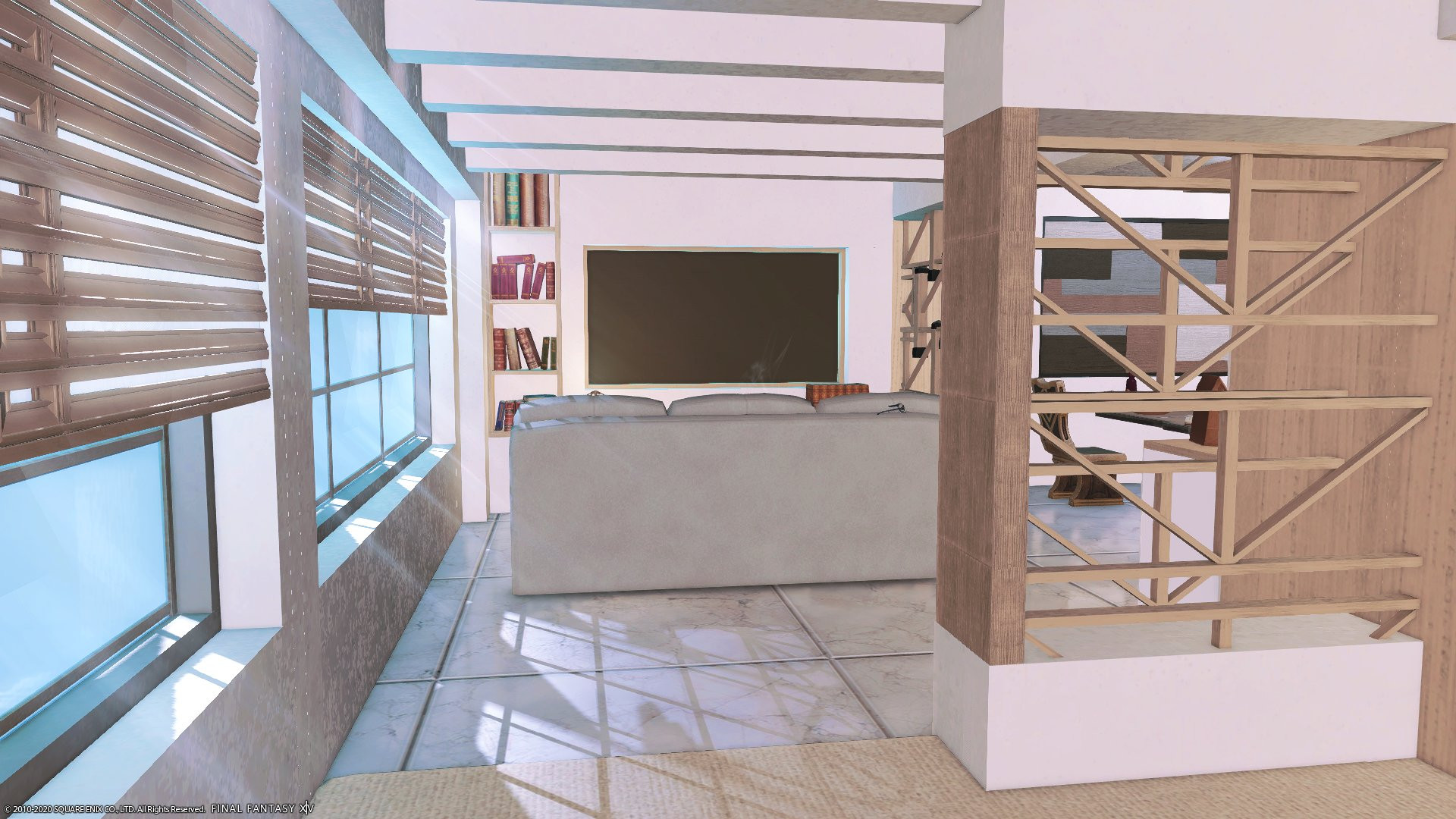
Ashen had been playing Final Fantasy 14 for several years before getting her first house during 2017's Stormblood expansion, and she became enamoured by the design possibilities. Searching online for inspiration, she eventually found her way to Tumblr, where she was introduced to the rudimentary floating glitches. In the nascent housing community, then only a few English-speaking players amid the much larger Japanese contingent, she met Dividus Yliaster, and the pair began experimenting and sharing ideas.
"Each and every patch, we just go immediately into the preview inside our home, and pull it through the wall, and see the smallest things," Dividus says. "We know we are going to pay like two million gil for this item at the very beginning, just to have a door handle, but it's very much worth it."
Relative old timers, Ashen and Dividus have watched housing move from Tumblr, to Discord, to Twitter. They describe having almost no resources when they started, having to rely on each other and the occasional post that suggested an interesting way to achieve certain decoration. This is what led to them starting HGXIV, which offers a mix of guides to certain techniques, tours of people's homes, and just general discussion.
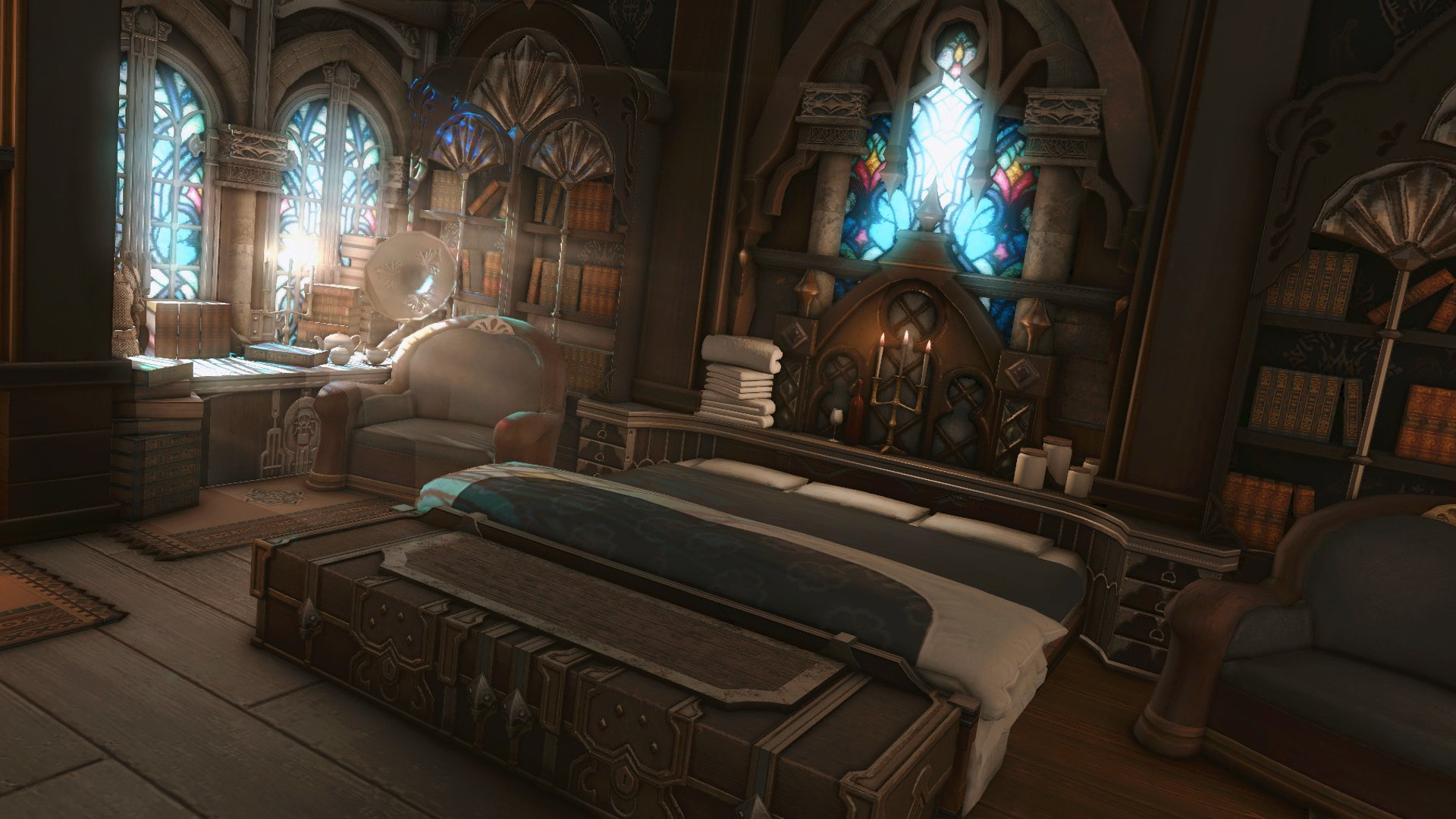
"Back in the day, we had to learn everything by ourselves. Now, we want to be the people who provide these guides that teach you how to do it," Dividus says. "Showing people what can be possible—not only show them what we do, but also what they could do."
Keep up to date with the most important stories and the best deals, as picked by the PC Gamer team.
Neither Ashen nor Dividus have any love for the baseline mechanics. Uninspiring and not wholly useful, the standard building options make even basic decisions feel limiting. "The system is not intuitive, it's not easy, you have to break the game in order to put cabinets in your kitchen," Ashen explains, "I wish it could be easier, like a Sims game."
Overlapping aquariums caused servers to overload due to overwhelming light refraction.
HGXIV draws thousands of viewers per episode, some looking for tips, others just there to see nice properties. A third co-host, Synt Slap, joined in April 2020. Solely a housing player, Synt recalls having his mind-blown by seeing a creative use of the Z-axis for the first time. "One of my friends was designing my house, and they had brought a bunch of walls up from the floor below to make them look half height," He tells me. "I'd seen nothing like that before, it was different, and I realised that there's a world beyond what you'd initially think."
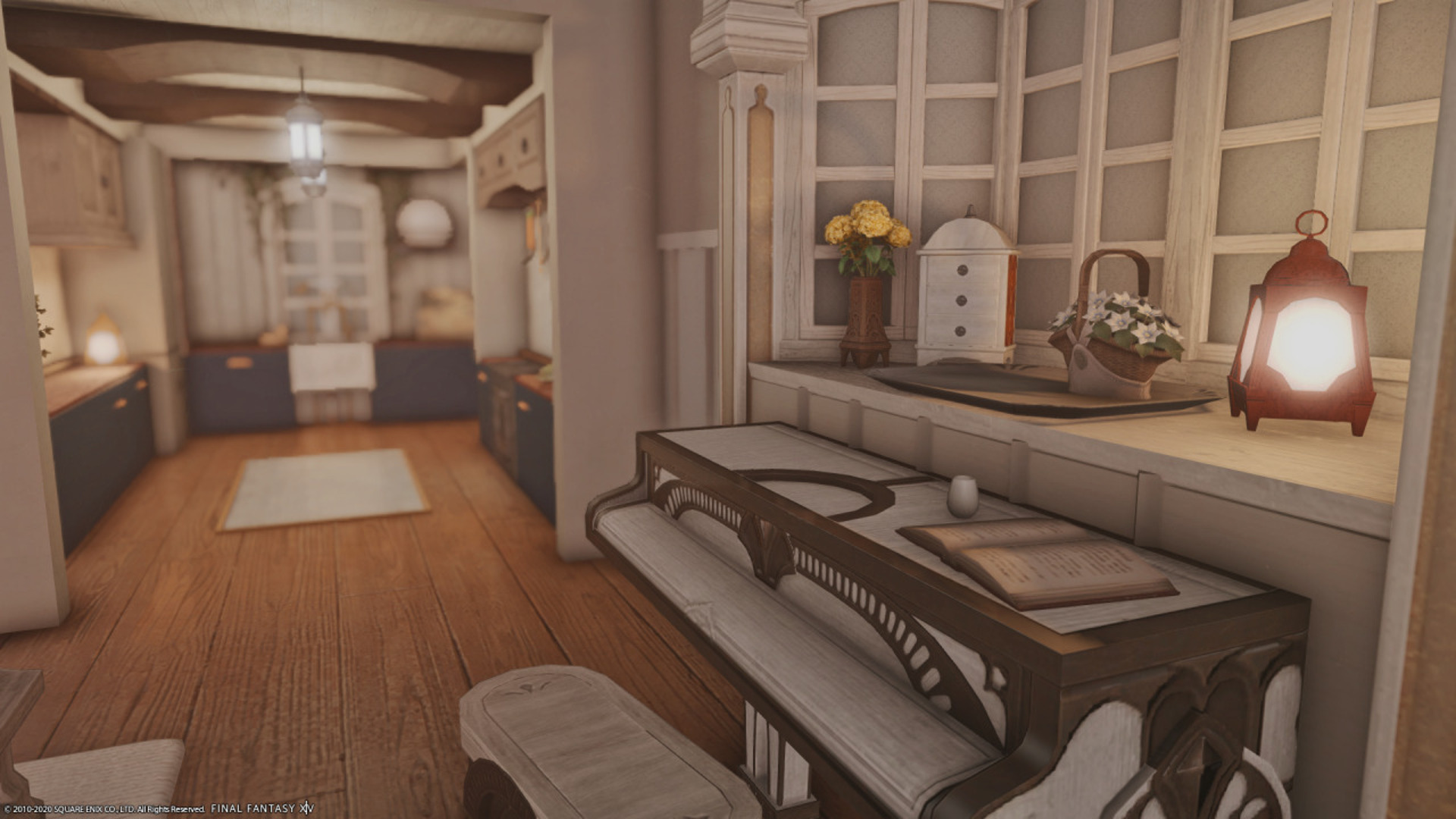
Synt came from World of Warcraft, like Ashen, and found Final Fantasy 14's slower pace a tad boring before seeing what could be done to furniture and upholstery. As a more technical player, he enjoys the challenge of making a house "airtight", filling in every gap and creating a flow from when you enter the front door through to every other room. Every designer has a different approach to making a house a home. Dividus, for instance, talks up the need for good lighting to make your spaces pop, and sticking to a theme so everything ties together. Ashen's philosophy is decidedly more film-inspired.
"I learned something from George Miller, he did the Mad Max movies. He says, 'The camera always has to be focused in the middle, and it doesn't waver, it doesn't move constantly, in the middle.' So, when I build houses, when I look around houses, I want to stand in the middle of the house, and I just want to turn my camera, and I want something to always be right there, in the middle. No bare wall, no open space, there always has to be something you need to look at."
Many home-planners decorate for each other, maintaining online portfolios, and some offer commissions. These commissions are the easiest way to create some challenges and step out of one's comfort zone. "When I do commissions for people who aren't within my close circle of friends, I ask them what they'd like and work from there. With those, I tend to rely more on imagery and photos," Midori Toudou, a home designer on the Exodus server, tells me. "For commissions from friends and clients in which I'm given complete free reign, I base it off a feeling or mood I'm in."
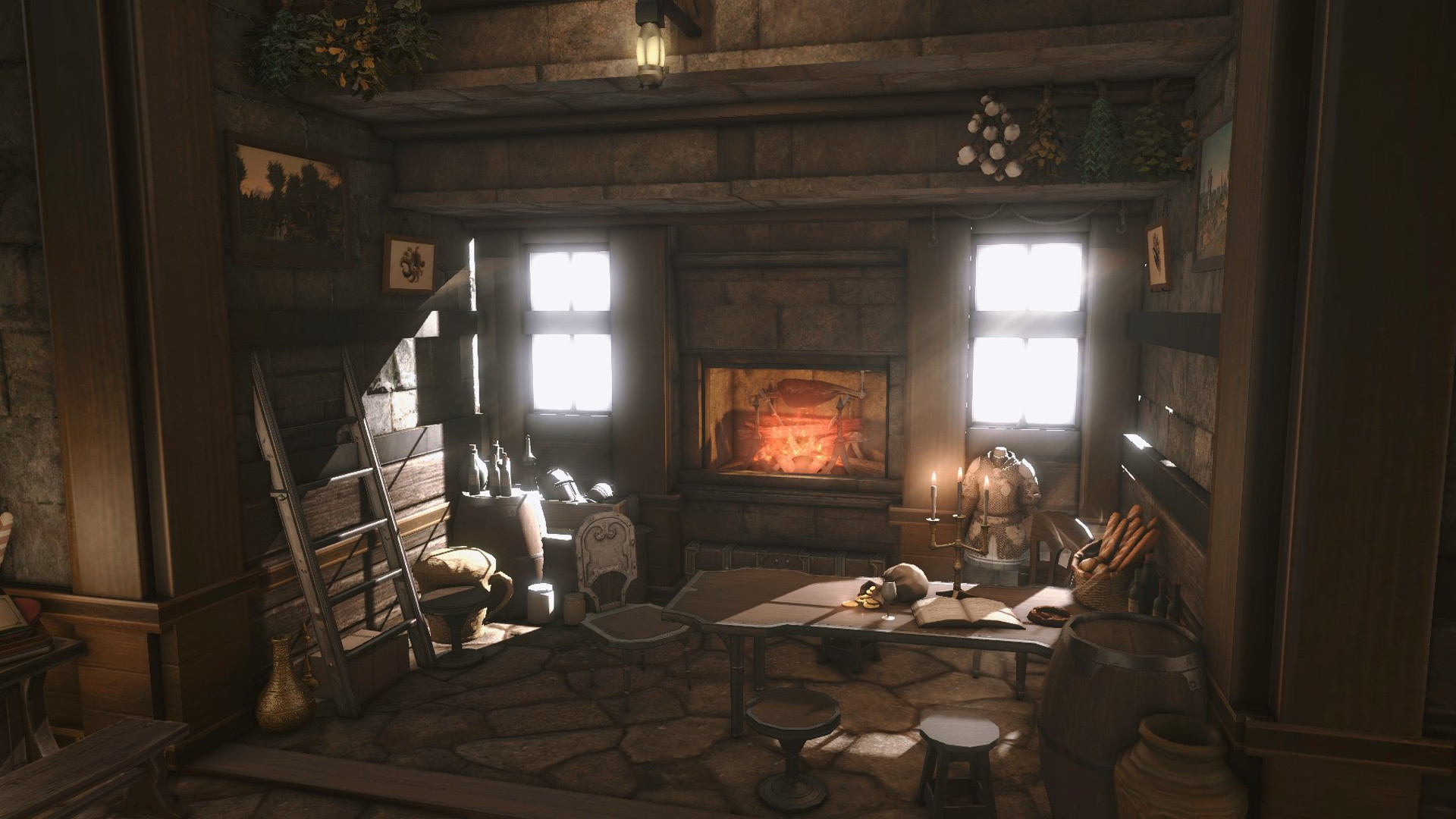
Another decorator, Ellie, says that getting the atmosphere right can be a painstaking process. "We often go through multiple iterations of a house before we settle on a final design. Teardowns and re-dos are common," she says, "but when it's all said and done most people, including myself, love realism and immersion. People want to zone into a space with friends, or a private getaway that evokes a mood or feeling, whether it's being transported to a fantastical castle, a whimsical garden or a sleek modern pad."
Design systems aside, the housing market itself has become a massive barrier to entry, suffering a major shortage of late across European and American servers. Getting a house requires a mixture of luck and dedication, combing the wards and competing against other players to be the first that gets to sign the dotted line.
"When I moved to the North American server, I spent probably four days checking every single ward. Houses were popping up as empty, and I spent about 20 hours pressing the same three buttons, to get one," Synt remembers. "On the house I got, it was about 11 hours on the session, and that's me spamming inputs to the point my hand's hurting."
This is an issue Square Enix is aware of, adding more wards as recently as update 5.35, but it's not enough. To their credit, the developers have been quietly supportive of the housing community, only patching glitches when they become truly game-breaking, like one incident where overlapping aquariums caused servers to overload due to overwhelming light refraction. Occasionally, they've been wowed by what these creators are doing.
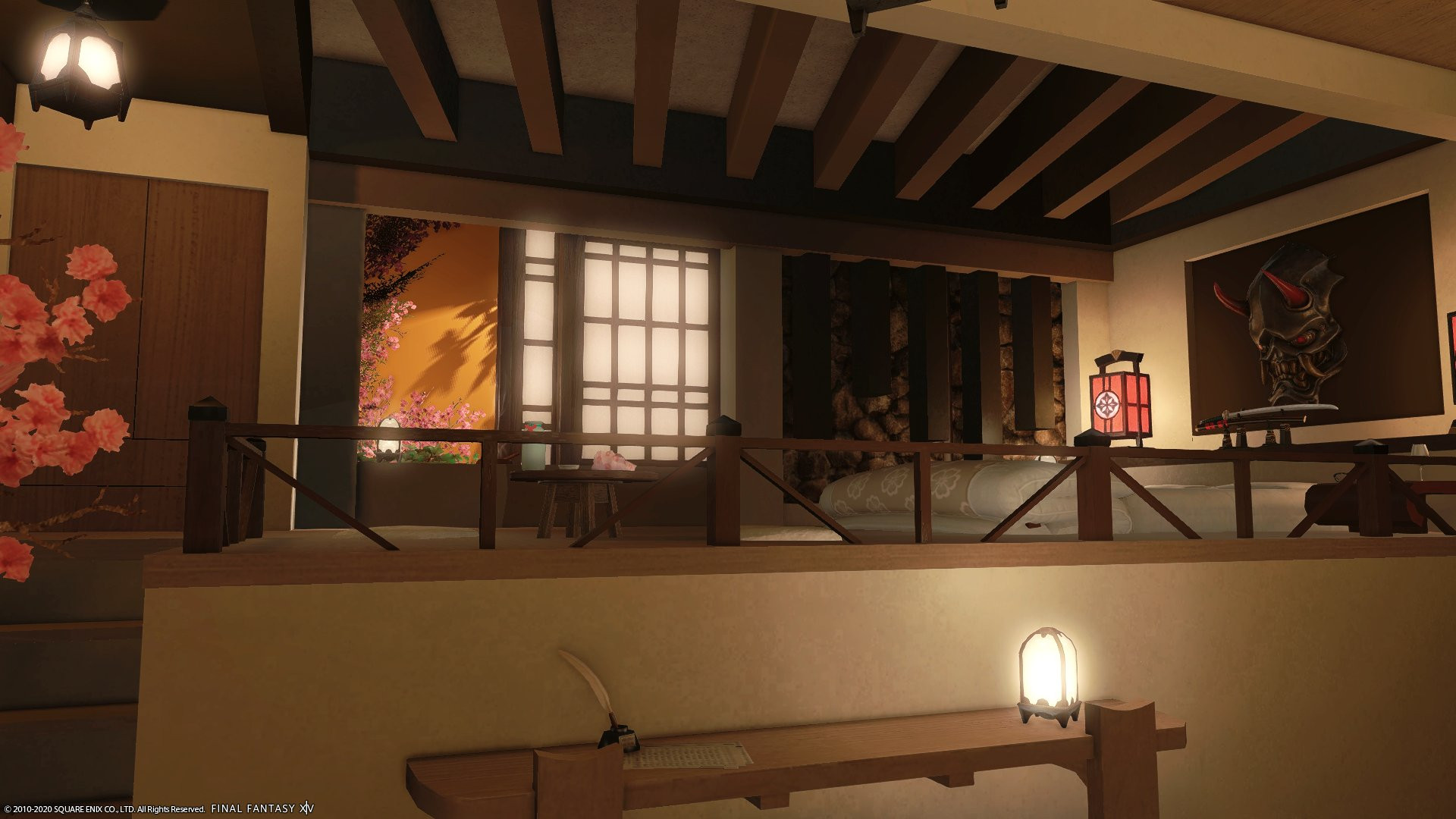
"The team visited a house, and to us it would be so simple, but (game director) Naoki Yoshida looked at it and he was like 'Wow, that's amazing!'" Ashen says. "I don't know what's going on with housing over there, we have lots of thoughts and feelings, but we also have to understand that we're so small. It's not that they don't care, we get lots of furniture, but I don't think they're really tapped into what the community wants."
But that's where HGXIV comes in, giving décor admirers and fledgling artists somewhere to congregate and find like-minded players. Everyone I spoke to considered housing an uplifting, kind little piece of digital real estate to hang around in, with most saying they'd quit if Square Enix quashed the glitching. Housing is a labour of love, emphasis on the love.
"I've always said 'To house is to suffer,' because it is, you're going to spend hours in it," Ashen says. "But I hope, with how the community is now—because it didn't used to be there—it's easier for people, as a gateway."

